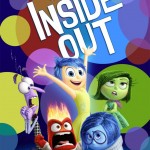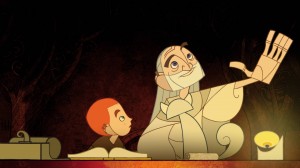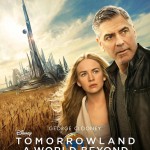A review by Jeffrey Overstreet
●
Writer / Director – Robert Duvall
Director of photography – Barry Markowitz
Editor – Steve Mack
Music – David Mansfield
Production designer – Linda Burton
Producer – Robert Carliner
October Films. 148 minutes. Rated PG-13 or mild violence and language and situations regarding adult sexual indiscretions.
STARRING: Robert Duvall (the Apostle E. F.), Farrah Fawcett (Jessie Dewey), Miranda Richardson (Toosie), John Beasley (Brother Blackwell), June Carter Cash (Mrs. Dewey Sr.) and Billy Bob Thornton (Troublemaker).
●
In his directorial debut, Robert Duvall gives the best performance of 1997.
Even more impressive, he wrote it. And it may be the most unapologetic, intimate portrayal of a religious man in the history of American cinema. Duvall clearly knows his way to the heart of southern evangelicalism. To the amazement of audiences accustomed to cruel caricatures, he reveals that believers of this variety, for all of their emotionalism and sensationalism, can be noble, hardworking, admirable people.
This is the story of the Reverend E.F. — “Sonny,” to those close to him — a minister whose marital troubles lead him to a violent crime and a run from the law. It sometimes seems that filmmakers find it impossible to portray a Christian who isn’t hiding some shocking skeleton in the closet or on the verge of stumbling into serious criminal behavior. But Duvall isn’t interested in attacking faith… just hypocrisy. He illustrates the fallible humanity of evangelists, the need for humility in a leader, and the need for redemption even in (and especially in) a man of God in the spotlight. E.F. has not overcome all his sins, still tends to have “a wandering eye” to pretty women, and still wrestles with personal demons at the end. Thus, the film remains a realistic character sketch rather than a sermon to audiences that would rather not be preached at. Duvall’s storytelling avoids sentimentalism and leaves a lot of loose ends, giving the film the authenticity of a good documentary when it comes to the context, and the intimacy of a candid autobiography.
How rare it is to see a character who loves and worships God and who, like so many saints, ALSO sins and gets angry with God. In this, we find a truer example of the gospel at work than we would in a preachy, two-dimensional story. This gospel feels applicable to own own lives, unlike the harsh and punishing prescriptions of judgmental and legalistic TV preachers. This reverend does not seem so alien and threatening to us when we see his weaknesses, his heart, and his own incomplete understanding of an incomprehensible God.
Duvall’s story is so simple, he can take his time and acclimate the audience to the environment, the needs of the communities, and thus the possibilities of healing and harmony in broken families and across racial lines. Duvall’s supporting cast includes a surprisingly engaging Farrah Fawcett as his disillusioned wife, Billy Bob Thornton as a stubborn thick-headed redneck, and Miranda Richardson in yet another of her astonishing transformations this time, she’s a southern belle through and through.
The enthusiasm of the congregations in the churches depicted is remarkably genuine, and even hardened skeptics will find it hard to resist the inspiring power of those rousing worship services. When seen in combination with the simple powerful telling of the gospel in Spielberg’s Amistad, The Apostle should have viewers thinking about the gospel in a fresh new way this year… and I suspect its power will make it an enduring favorite.











